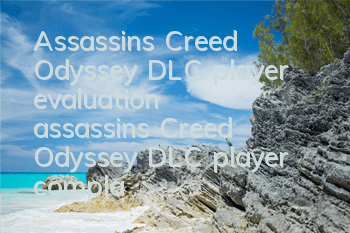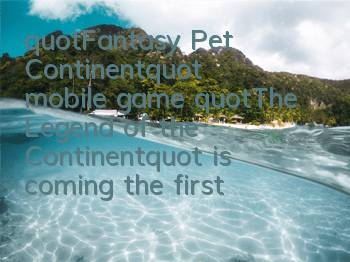Two weeks ago, with the release of the final chapter of Atlantis's Destiny DLC in "Assassin's Creed: Odyssey", this work finally ushered in the end of the main plot. After I passed the entire process, I couldn't help but admire: this DLC designed by Ubisoft is really clever, and it vividly displays a first civilization world (that is, the world of Yishuren) that is completely unrealistic.
So I came to the community to communicate with many players with the attitude of learning and sharing. Finally, I came to a conclusion: most players are not satisfied with this DLC.
To analyze specifically, these "most" players include two typical groups, one is the old players who supported the "Assassin's Creed" series at the beginning, and the other is the new players who came here because of the success of "Assassin's Creed: Origin".
For old players, there are three things they are not satisfied with: First, the interval between the modes published in chapters is too long, which leads to incomplete sensory gaming experience. Moreover, the three chapters take place in different regions, making this experience even more fragmented. Secondly, the modern plot is not rigorous, and some of the protagonist's behaviors (such as killing the doctor) are even shocking. The last point is that the gameplay seems to be new, but in fact it is a skin change.
For new players, the main dissatisfaction is focused on the explanation of the world view. Yishu civilization has implemented the entire Assassin's Creed universe from beginning to end. Juno and Aita are also villains that have appeared in old works, but new players are not familiar with these concepts. For them, the entire DLC is a completely nonsensical adventure: the mysterious woman (referring to Althea) leads you to three worlds separately, then completes each task in a regular manner, and finally ends hastily. If you have not experienced the preparation of Yishu's civilizational worldview in the previous works, it is difficult to understand what DLC wants to express. Obviously, Ubisoft has not taken care of this group of players.
For me, this DLC surprised me very much, and was also a little disappointed (may seem contradictory). I'm a person who loves science fiction stories very much, so when Althea said she wanted to use digital technology to simulate a trial for me, I couldn't wait to get in. The three worlds with distinctive themes fill me with the desire to explore.
After experiencing the first two chapters, I did not understand what this DLC wanted to tell, but after I finished the final chapter, all the puzzles were revealed. I realized that Althea is the embodiment of truth in the game, and she protected humanity from the Ishu tribe.
It is obviously difficult for players to truly understand Althea's thoughts through just a few words. So Ubisoft directly designed these three adventures: "Elysia", "Underworld" and "Atlantis" represent "order", "chaos" and "balance". After experiencing the "collapse" of these three worlds, I finally understood the meaning of "guardian" in the protagonist's identity: the game world does not have absolute justice, but is full of too many unstable factors, only one qualified oneOnly by guardians can these unstable factors be resolved one by one and bring peace to the world.
Okay, let's stop here. As an interactive entertainment carrier, the game is obviously not enough to contain some in-depth plots. Next I will start to complain about why this DLC final chapter could have done better.
In the game, one of the protagonists' identities is the "judge", namely the left and right hands of Neptune Poseidon, who has the right to deal with various disputes in Atlantis City. However, in fact, choosing different approaches to many tasks cannot change the outcome.
What impressed me was that there was a task called "Atlantis Patient" in the process. A doctor wanted to rescue the sick person, but the disease spread too fast and had to use medical equipment that was once banned by Poseidon. Here the protagonist needs to make a choice: whether to take the risk of violating the regulations or to purify the patients directly.
I definitely can't bear to let me "take action" on humans, so I chose to retrieve that device.
After going through a lot of hardships, I finally stole medical equipment from the archives, but what surprised me was that this high-tech called "Sacred Wound Cloth" actually killed the patient alive. How could I accept such an ending, a kind person? So I read the previous archive and re-engage the task, and chose another option: we should purify the patients. However, the ending did not change, and the doctor still asked me to steal the Holy Wrapper.
I originally thought that this task would be similar to the way the plague was handled on Kefalonia, and that different decisions would have an impact on the subsequent situation. It seems that I am thinking too much, but in fact, the dialogue has changed and the ending has not changed.
It seems that in the open world, the judge was able to decide the development of Atlantis, but the ending was fixed. I believe that such a task structure could have been better, but due to insufficient development time, a lot of things were abandoned.
In addition, the formulaic stronghold is also very exhausting. Although the Archives are a new game element, after completing several, I gradually discovered the rules of the terrain in it. There is no sense of design at all, and there is only the experience of repeating and repeating it again.
Another complaint is about the ending. At the end of the process, the protagonist claims to return to Animus to say goodbye to many people, but there is no more plot after going back. Some CGs could have been inserted here to leave suspense for the sequel, but the script written by Ubisoft stopped, making people very confused.
Atlantis is beautiful, but the gameplay is still not satisfactory enough. I hope Ubisoft's next works will get better and better.
Finally, two more comments from Sister Card. (It seems that Ubisoft itself knows that the mission gameplay is the same)









